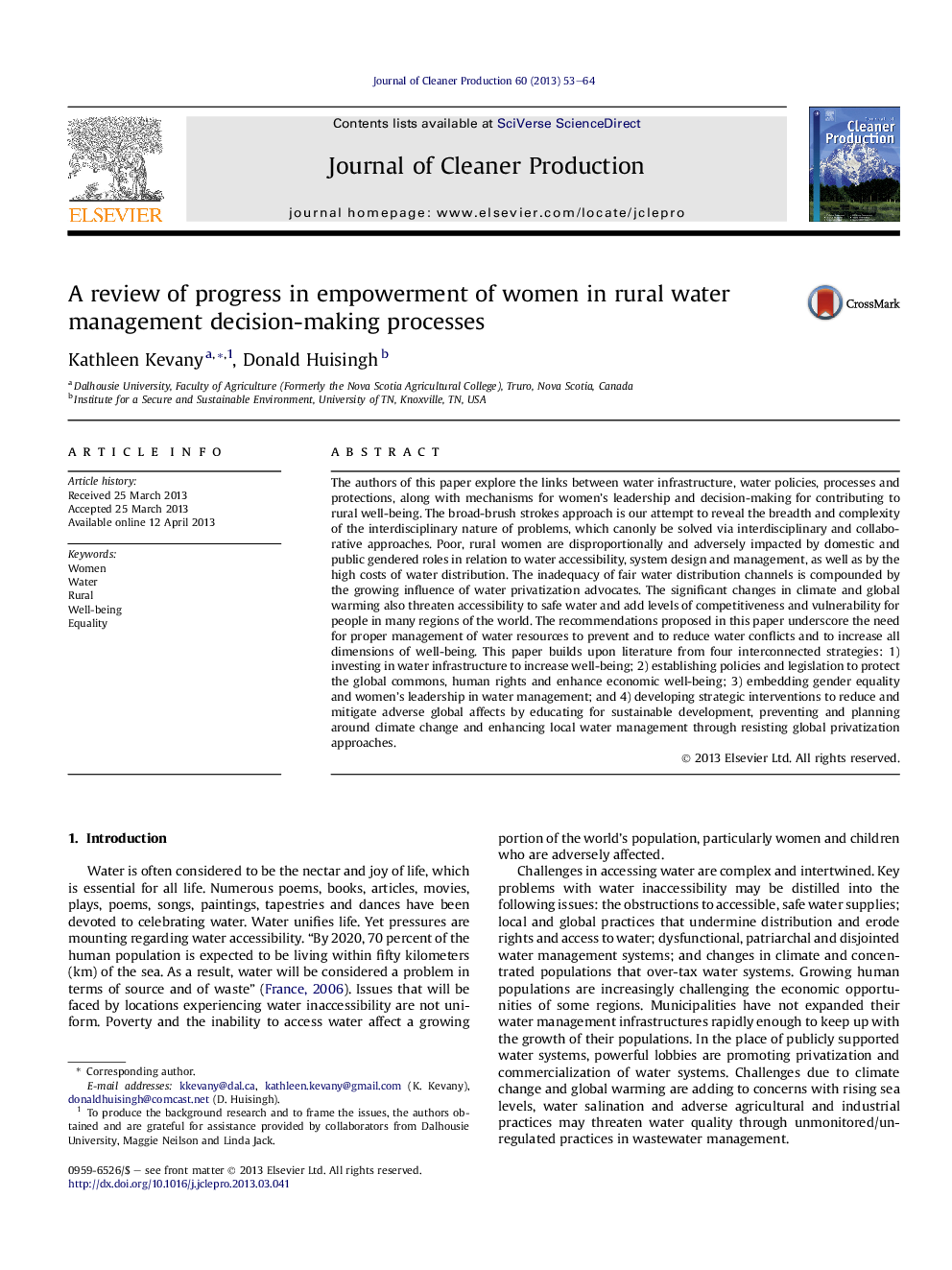| Article ID | Journal | Published Year | Pages | File Type |
|---|---|---|---|---|
| 8107163 | Journal of Cleaner Production | 2013 | 12 Pages |
Abstract
The authors of this paper explore the links between water infrastructure, water policies, processes and protections, along with mechanisms for women's leadership and decision-making for contributing to rural well-being. The broad-brush strokes approach is our attempt to reveal the breadth and complexity of the interdisciplinary nature of problems, which canonly be solved via interdisciplinary and collaborative approaches. Poor, rural women are disproportionally and adversely impacted by domestic and public gendered roles in relation to water accessibility, system design and management, as well as by the high costs of water distribution. The inadequacy of fair water distribution channels is compounded by the growing influence of water privatization advocates. The significant changes in climate and global warming also threaten accessibility to safe water and add levels of competitiveness and vulnerability for people in many regions of the world. The recommendations proposed in this paper underscore the need for proper management of water resources to prevent and to reduce water conflicts and to increase all dimensions of well-being. This paper builds upon literature from four interconnected strategies: 1) investing in water infrastructure to increase well-being; 2) establishing policies and legislation to protect the global commons, human rights and enhance economic well-being; 3) embedding gender equality and women's leadership in water management; and 4) developing strategic interventions to reduce and mitigate adverse global affects by educating for sustainable development, preventing and planning around climate change and enhancing local water management through resisting global privatization approaches.
Keywords
Related Topics
Physical Sciences and Engineering
Energy
Renewable Energy, Sustainability and the Environment
Authors
Kathleen Kevany, Donald Huisingh,
